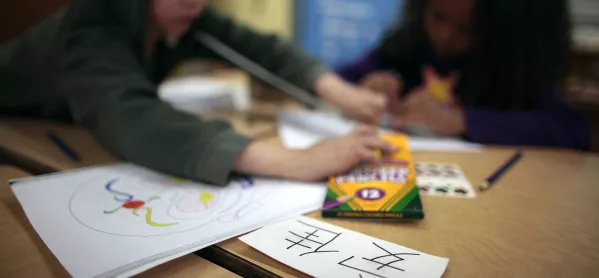An expanding academy chain plans to teach Mandarin to thousands of pupils across its schools - to help prepare them for life in post-Brexit Britain.
The Co-op Academies Trust will offer Mandarin Chinese to more than 10,000 students.
The trust, which runs schools in Greater Manchester, Leeds and Stoke-on-Trent, is working with the Swire Chinese Language Foundation, which supports the training of specialist Mandarin Chinese teachers.
Co-op Academies Trust currently has more than 10,000 pupils across 12 schools but plans to increase this number to 40 schools, with 40,000 pupils in total, by 2022.
The decision to teach Mandarin across all of the trust’s academies was inspired by a trip to China by trust director Frank Norris.
While staying in Chongqing, in the south-west of the country, Mr Norris spent two days in a primary school to see for himself how the children were taught.
He said: “What struck me was the sheer size of the population and what our students will be competing against in the future.
“We currently offer the traditional languages such as French and German, but at a time of Brexit - and now with direct flights from Manchester to Beijing - we need to make sure we look to China and equip our students with the skills they may well need to be successful.”
Mandarin ‘is a great leveller’
The Swire Chinese Language Foundation opened a centre in Manchester in 2016, in association with The Manchester Grammar School.
It aims to encourage more pupils in the North of England - including in some of the most deprived parts of the region - to learn Mandarin Chinese.
Schools can apply to the charity for support. If they are successful, the foundation then funds teachers’ salaries and training, pupils’ trips to China, administration and technology. But it expects all the schools involved to become self-sufficient over time.
A recent survey of language teachers by the British Council showed that schools with more pupils from disadvantaged backgrounds spent less time teaching languages.
It revealed that schools with the lowest proportions of pupils on free schools meals - a key measure of poverty - were more than twice as likely to offer 11- to -14-year-olds two-and-a-half hours or more of languages per week than those with the highest proportions of students getting free dinners.
However, Mr Norris suggested that learning Mandarin could level the playing field for all pupils.
He said: “Mandarin is a great leveller because it doesn’t matter how good your English is and whether you speak a second language. Everyone is starting together from scratch.
“Our academies are located in communities that have some of the greatest educational challenges, but there is no reason why our students shouldn’t get the same or even better opportunities than others.”
In 2016 the government launched a four-year Mandarin Excellence Programme to increase the uptake of the subject in schools.




